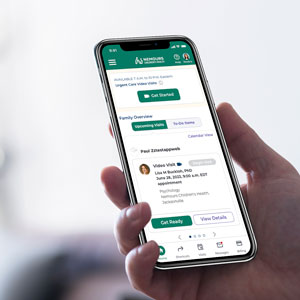A Long-Term Noninterventional Registry to Assess Safety & Effectiveness of Humira®, Crohn's Disease
Clinical Trial
Offered by: Nemours Children's Health, Jacksonville
Location: Jacksonville, Fla.
Trial Name
A Long-Term Noninterventional Registry to Assess Safety & Effectiveness of Humira, Crohn's Disease
What is the trial about?
To collect long term safety information on Humira® (Adalimumab), a monoclonal antibody approved for the treatment of Crohn’s Disease, in children. Information will also be collected if your child is using immunosuppressant treatment such as Methotrexate.
Who can participate?
Children 6-17 years who have just started to take Humira within the last 4 weeks. Children 6-17 who have been on an immunosuppressant such as azathioprine, 6-mercatopurine, or methotrexate for at least 12 weeks.
What is involved?
If you decide to allow your child to participate, he/she will be followed for 10 years. Since this is noninterventional observational registry study which aims to collect information based on real life conditions, there will not be any extra visits for the research study. The first group is for children between the ages of 6 and 17 who are taking Humira® (Adalimumab) for the treatment of moderately to severely active Crohn’s Disease. The second group is for children between the ages of 6-17 who have been prescribed a conventional immunosuppressant such as azathioprine, 6-mercatopurine or methotrexate for the treatment of moderately to severely active Crohn’s Disease.
There are no additional procedures or treatments required to be in this study. The research team will collect information from your child’s regular office visit with the doctor. You and your child will also be asked to complete questionnaires at each visit for the first five years of the study.
Is a Clinical Trial Right for Your Child?
Learn more about clinical trials and get answers to questions you might have.


